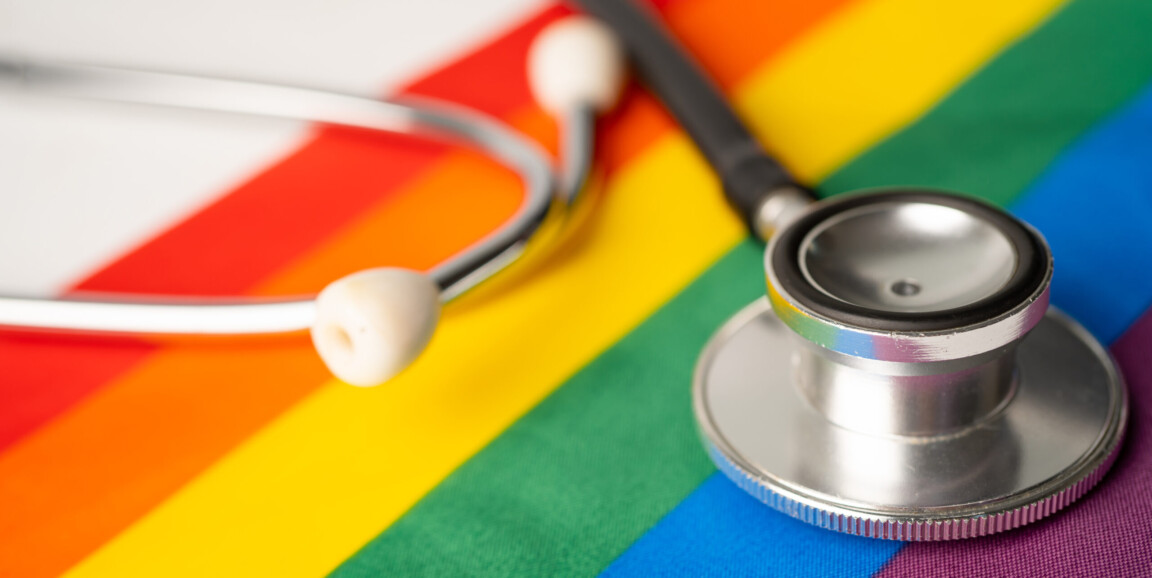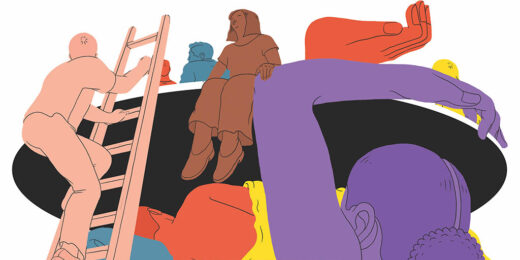As a middle-aged, cis white woman sporting a coif of newly acquired grey hair (I call it pandemic silver), I feel fairly safe living in my small town in northwest Montana. But I know from personal experience with loved ones that people who are LGBTQ+ can have an entirely different experience in this town -- and according to a recent study the stress and anxiety this causes may have a measurable negative effect on their health.
The study was conducted by researchers who are part of The PRIDE Study, an online network launched in 2015 by associate professor of obstetrics and gynecology Juno Obedin-Maliver, MD, and associate professor of medicine Mitchell R. Lunn, MD, to amass data about the health experiences and outcomes of people who are LBGTQ+. It asked participants about stigmas or discrimination they experienced and found that feeling safe in their community was strongly correlated with better physical health.
I recently spoke with Obedin-Maliver and Lunn, who identify as LGBTQ+ themselves, for my latest Stanford Medicine magazine story about The PRIDE Study. The study now has over 23,000 LGBTQ+ people across the country who opt in to participate in investigations that run the gamut -- from mental health to pregnancy to migraines to body image and eating disorders.
Obedin-Maliver explained that she and Lunn wanted to combine their various strengths as researchers, health care providers and community members to better understand health outcomes related to being LGBTQ+ in the United States. Because many LGBTQ+ people report being treated poorly or blamed by medical professionals for their health problems, this can make them avoid needed care.
To support The PRIDE Study, Obedin-Maliver and Lunn created PRIDEnet -- a national network of individuals and organizations that advise the researchers and conduct outreach to raise awareness of The PRIDE Study. PRIDEnet now also aids recruitment efforts for the LGBTQ+ arm of the National Institutes of Health's All of Us Research Program, which aims to gather health data from more than one million people in the United States from diverse background to advance medical research and public health.
"When we started The PRIDE Study, we realized that we needed a way to partner with the community that was appropriate and respectful," Lunn said. "So we formed a network of people and organizations serving LGBTQ+ people across the country to ensure that we get input from people of different races, geography, education levels and income. There is so much diversity in this community that has been uncaptured."
A key goal, the researchers said, is understanding how members of the community are categorized and classified into health risk categories that drive clinical decision-making. One thing they've learned is that few intake forms or study questionaries ask about sexual and gender identity, and those that do don't use questions that account for gender fluidity and the many identities that members of the LGBTQ+ communities embody.
Terminology is also important, one study found. A trans man, for example, may feel more comfortable using the word chest rather than breasts when speaking to a health care provider, and a trans woman may choose alternate words for penis.
"We need better tools to meet people where they actually are," Obedin-Maliver said. "We want people to have positive experiences when accessing health care, rather than gritting their teeth and wondering how each interaction is going to go."
Photo by amazing studio






